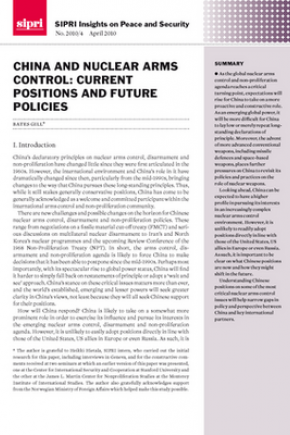China and Nuclear Arms Control: Current Positions and Future Policies
As the global nuclear arms control and non-proliferation agenda reaches a critical turning point, expectations will rise for China to take on a more proactive and constructive role. As an emerging global power, it will be more difficult for China to lay low or merely repeat longstanding declarations of principle. Moreover, the advent of more advanced conventional weapons, including missile defences and space-based weapons, places further pressures on China to revisit its policies and practices on the role of nuclear weapons.
Looking ahead, China can be expected to have a higher profile in pursuing its interests in an increasingly complex nuclear arms control environment. However, it is unlikely to readily adopt positions directly in line with those of the United States, US allies in Europe or even Russia. As such, it is important to be clear on what Chinese positions are now and how they might shift in the future.
Understanding Chinese positions on some of the most critical nuclear arms control issues will help narrow gaps in policy and perspective between China and key international partners.
I. Introduction
II. China’s principles, practice and upcoming challenges
III. China’s current positions and future policies
IV. Conclusions: Next steps for engaging China

